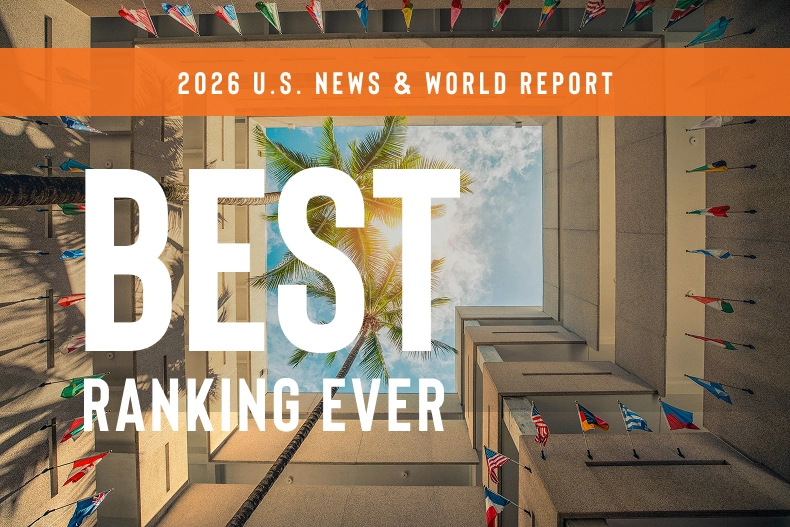Homepage

Tomorrow's Leaders Are Built Today.
At Miami Herbert Business School, we develop principled leaders who transform global business and society. Take your next step to take on the world. Your tomorrow starts here.
Programs

What We Stand For
Leadership. Diversity and Inclusion. Sustainability. Global Focus. Technology. At Miami Herbert, our values shape our innovative educational model.
Learn About Our MissionThe Miami Difference

AACSB ACCREDITED

EQUIS ACCREDITED

AMBA Accreditation
Miami Herbert is one of three business schools in the U.S. with triple crown accreditation.
Undergraduate Business School
Miami Herbert ranks #1 in Florida, #21 in the nation, according to Poets and Quants for Undergrads 2025.

The Economist ranks MBA faculty quality No. 8 worldwide
The full-time MBA program at Miami Herbert and its professors ranked among the world's best by The Economist's 2021 Which MBA? Full-time rankings.

A finance and tech hub
Miami is the epicenter of business innovation.
Banks
There are more than 120 banks or banking divisions in Miami.
City for startup activity
2017 Kauffman Index
Foreign trade offices and consulates
Miami has nearly 90 foreign trade offices and consulates.
Multinationals
More than 1,200 multinational corporations have headquarters of Latin American divisions in Miami.
Most international city in the U.S.
U.S. Census Bureau
Countries represented by our student body

The city of Miami is a thriving gateway between the United States, Latin America, Europe, and the Caribbean.

Arts Scene
Miami has a vibrant arts scene, with music, theater, and more than 100 galleries.
Undergraduate students
Fall 2024
Graduate students
Fall 2024
Specialized Programs
Outside of the various MBA options, the school offers 8 Specialized Master Degree programs. Most can be completed in under 1 year.
Faculty Identify as a Minority
In the U.S. for Business Sustainability
Corporate Knights Better World MBA Rankings 2020.
In Florida
Miami Herbert is the first in the state of Florida to achieve LEED Gold Certification for Existing Building Operations & Maintenance (EBOM) as designated by the US Green Building Council (USGBC) for its environmental performance and sustainable operations.
In the U.S. for Corporate Social Responsibility
And #17 worldwide, according to the Financial Times Global MBA Ranking 2021.
News






















